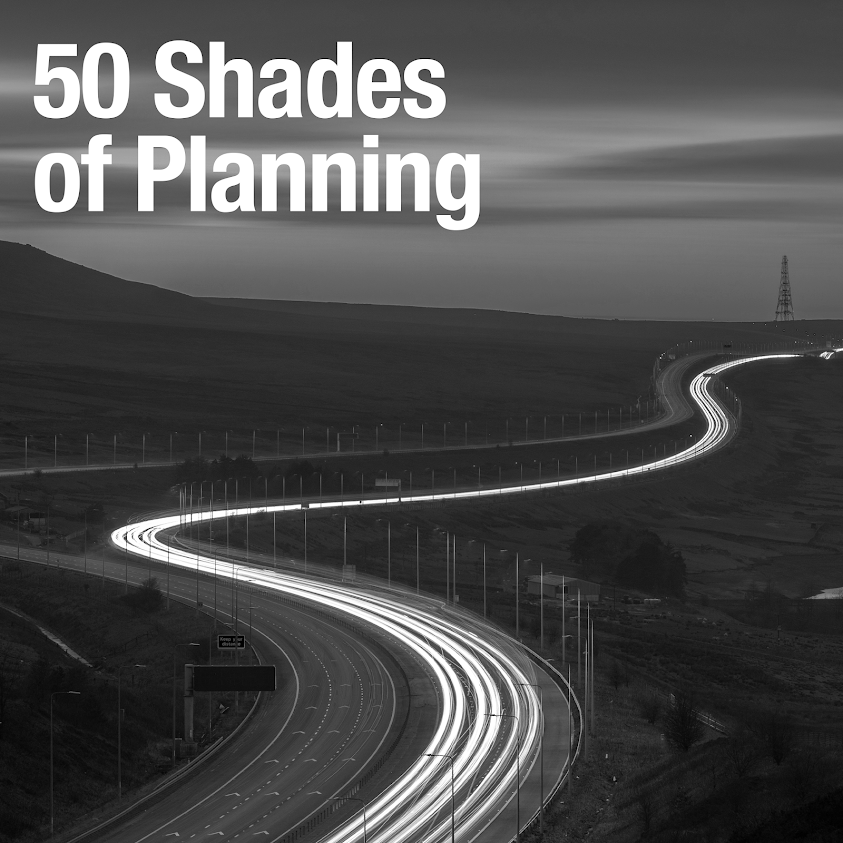In February 2010 the opposition Conservative party published a green paper called 'Open Source Planning', which promised to "restore democratic and local control over the planning system". In a Written Ministerial Statement in July 2010 the Conservative Secretary of State for the Department of Communities & Local Government revoked the Regional Strategies.
The revocation of Regional Strategies will make local spatial plans, drawn up in conformity with national policy, the basis for local planning decisions. The new planning system will be clear, efficient and will put greater power in the hands of local people, rather than regional bodies.
Revoking, and then abolishing, Regional Strategies will mean that the planning system is simpler, more efficient and easier for people to understand. It will be firmly rooted in the local community. And it will encourage the investment, economic growth and housing that Britain needs.
The Localism genie was well and truly out of it's bottle.
In contrast, a press release issued by the opposition Labour party to coincide with Kier Starmer's party conference speech in October 2023 was entitled "‘How’, not ‘if’: Labour will jump start planning to build 1.5 million homes and save the dream of homeownership."
The press release states that:
Labour’s plans will enhance local communities power and voice over ‘how’ housing is built to best service local people, while challenging those who question ‘if’ homes the homes people need should be built at all.
Is the Localism genie about to be put back in it's bottle?
One senses that most practitioners would not mind too much if it is. The planning system evidentially and to it's immense discredit lacks what Shelly Rouse has taken to call 'The Cascade of Proportionality'. Decisions of national significance need to be taken nationally, decisions of regional or sub-regional significance need to be taken regionally or sub-regionally, decisions of local significance need to be taken locally; and decisions of significance to a parish council or neighbourhood forum need to be taken by a parish council or neighbourhood forum.
It is something of a shame that it has taken the near collapse of plan-making (above) for politicians to spot planning's proportionality gap because the desire on behalf of the public to 'restore local control' has always seemed to this observer as somewhat overestimated.
This is borne out by some YouGov survey material from around the time of last year's party conferences.
Let us just pause momentarily to let some of that sink in.
- Over 50% of people do not have a strong opinion, based upon everything that they have seen and heard (including presumably the 'top down target' brouhaha), about the planning system. 21% are ‘like, yeah, you know, whatever...’ and 33% do not know, which might reasonably be translated as ‘do not care’;
- Only 33% of people would oppose housing on low-quality Green Belt such as scrubland and car parks; and
- Only 28% would oppose building new town-sized settlements in areas with significant housing need.
The Westminster bubble policy wonks who obsess constantly about putting 'communities in control' might be advised to give weight to the Homer Simpson view on Localism.
The whole reason we have elected officials is so that we don't have to think all of the time.
When asked about Grey Belt or yet another new generation of new towns the majority of the public are probably just thinking "that sounds sensible, why don’t our elected officials just get on with it?”
The problem is, of course, that we do not just get on with it. First we consult on housing numbers; then we consult on which low-quality scrubland and car parks in the Green Belt should be released and where the new towns should go; then the housing numbers change so there is another consultation on that and since the numbers have gone down the new town does not need to be planned for and fewer low-quality scrubland and car park sites need to be released from the Green Belt. When those that are released have finally been allocated there will be a consultation on an outline planning application and then on the reserved matters, during which, dollars to donuts, somebody will be spot that the housing numbers have gone down again and query whether these sites do actually need to be developed.
Change may very well be coming though. This is an extract from a contribution that Matthew Pennycook, Shadow Housing & Planning Minister, made to a recent Westminster Hall debate.
The limitations of the duty to co-operate were well understood, but it at least imposed a requirement on local authorities to engage constructively, actively and on an ongoing basis to develop strategic planning policies where needed. Its repeal last year through the Levelling-up and Regeneration Act, coupled with the fact that no replacement has been brought forward, leaves us with no meaningful process for planning strategically across boundaries to meet unmet housing need, given the inherent flaws of voluntary spatial development strategies.
Indeed, the Government have now even removed from the NPPF the requirement to help neighbouring authorities accommodate development in instances where they cannot meet their areas’ objectively assessed needs. If we are to overcome housing delivery challenges around towns and cities with tightly drawn administrative boundaries we must have an effective mechanism for cross- boundary strategic planning, and a Labour Government will introduce one.
The majority of the public will probably think that that sounds sensible too.

.png)

.png)
.png)
Comments
Post a Comment